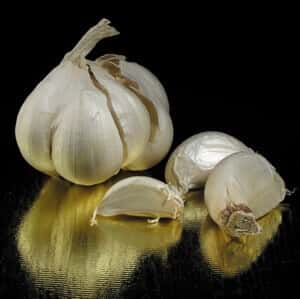
Many people are interested in using natural approaches for pain relief. However, those taking anticoagulants such as warfarin must be especially alert for potential risks. Doctors warn their patients that this drug may interact with other medications. In addition, it has the potential to behave badly when combined with certain natural products. Understandably, readers would like more guidance on this.
Which Natural Medicines May Interact with Warfarin?
Q. I am concerned about the possibility of interactions between anticoagulants and natural products with blood-thinning properties. I have been told not to use to use aspirin, cherry juice concentrate or turmeric supplements for pain relief because I take an anticoagulant.
A. Your concerns are justified. A wide variety of botanical products can interfere with blood clotting. They include garlic, ginger, ginkgo biloba and ginseng along with green tea, saffron and St. John’s wort (Current Pharmaceutical Design, Vol. 23, No. 8, 2017). Always ask your physician and your pharmacist to check for interactions with such natural products. You don’t want to risk a serious bleeding episode because of an interaction with a dietary supplement!
Compounds from a type of ginseng, Panax notoginseng, might be useful in preventing blood clots in leg veins (Molecules, Nov. 2020). Consequently, it seems quite risky to take ginseng if you are also taking an anticoagulant.
Other Interactions with Warfarin:
Q. Last year I was diagnosed with atrial fibrillation. I am now on warfarin and understand I will have to take it for the foreseeable future. I have regular blood tests to make sure my blood is clotting properly.
A few months ago I began taking garlic, thinking that it would help my heart. Shortly after I started, my blood work changed dramatically. Although I stopped the garlic pills, it took a good while for my blood to return to normal.
Are there any other herbs, supplements or OTC drugs that can affect warfarin?
A. Dozens of herbs and supplements have been suspected of interacting with the anticoagulant warfarin (Coumadin). Some include:
Chamomile, Coenzyme Q10, Cranberry, Danshen, Garlic, Ginger, Ginkgo, Ginseng, Grapefruit, Green Tea and St. John’s wort
Your experience with garlic suggests that it could interact dangerously with warfarin. Other natural remedies that might alter this anticoagulant’s action include ginger, ginkgo and feverfew. There are a number of case reports in the medical literature suggesting that garlic may raise INR levels (a measure of blood clotting). This could increase the risk for bleeding.
You can find more information on warfarin interactions in our free guide at this link.
Will Acetaminophen React Badly?
One potential interaction with warfarin that many health professionals overlook is acetaminophen (Tylenol). Although it has been known for decades that taking acetaminophen for more than a few days while also taking warfarin could raise INR levels, most patients are not warned about this risk (Pharmacotherapy, June 2011). Remember, when INR goes up too high, there is an increased risk for a bleed or even a life-threatening hemorrhage.
An occasional Tylenol or two for a headache should not pose a significant problem. The concerns goes up, however, if someone takes acetaminophen for more than two or three days in a row.
The Trouble with NSAIDs:
Another worry would be any NSAID-type pain reliever. That includes aspirin, ibuprofen or naproxen. Aspirin together with warfarin could interact to increase the risk of bleeding. The problem with other NSAIDs is that they can cause lesions in the stomach. These are far more likely to turn into life-threatening bleeding ulcers if there is warfarin on board.
Learn More:
The bottom line is to check with a physician and pharmacist before adding anything, including herbs or OTC drugs, to a warfarin regimen. Do check out our free guide to get an overview of this problem. To learn more about the interactions between prescription medicines and herbs, you may wish to read this post.
Citations
- Hirsch GE et al, "Natural products with antiplatelet action." Current Pharmaceutical Design, Vol. 23, No. 8, 2017. DOI: 10.2174/1381612823666161123151611
- Olas B et al, "Saponins as modulators of the blood coagulation system and perspectives regarding their use in the prevention of venous thromboembolic incidents." Molecules, Nov. 2020. doi: 10.3390/molecules25215171
- Hughes GJ et al, "Effect of acetaminophen on international normalized ratio in patients receiving warfarin therapy." Pharmacotherapy, June 2011. DOI: 10.1592/phco.31.6.591

